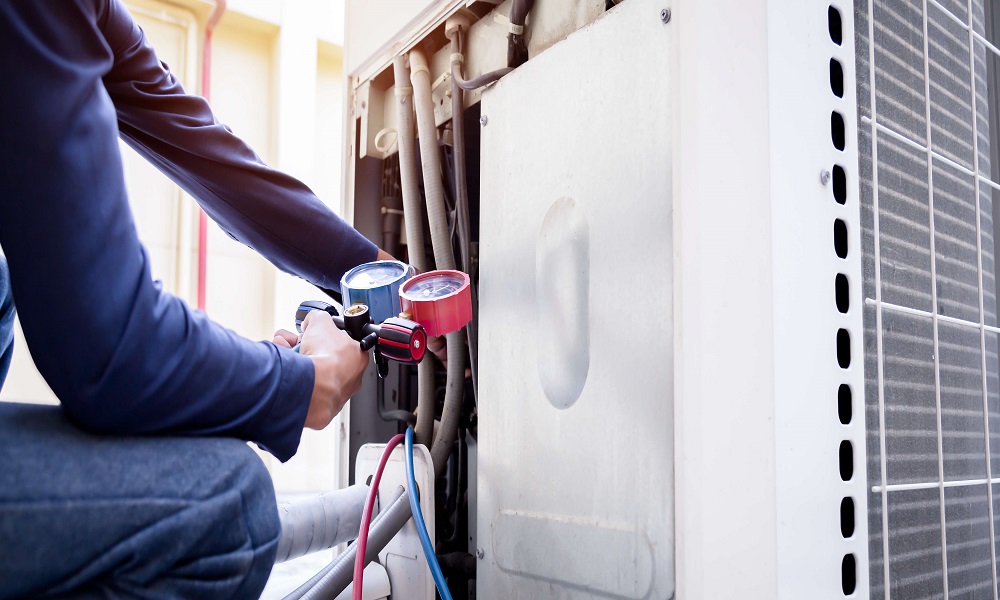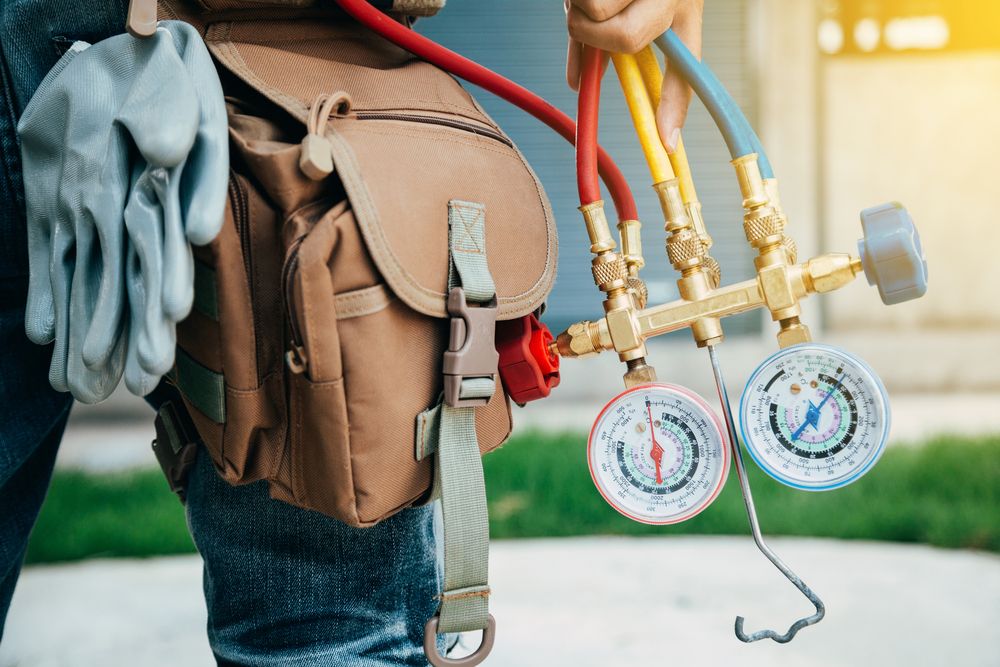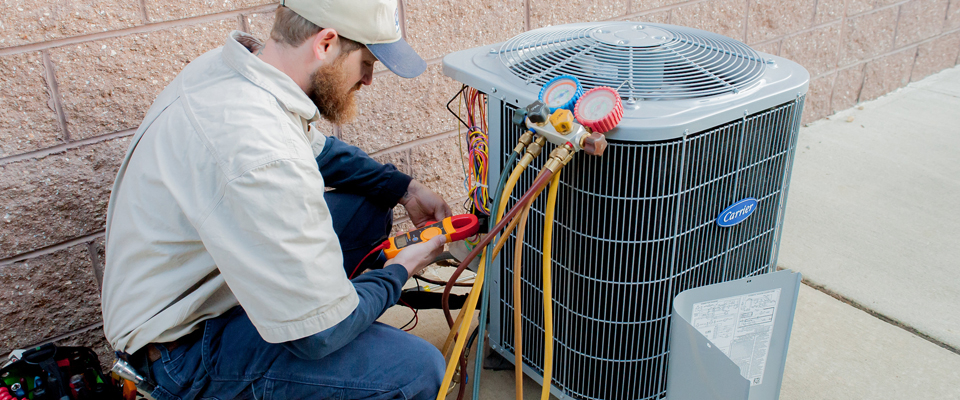Energy-Efficient HVAC Equipments to Conserve on Energy Bills
As power costs proceed to climb, the significance of energy-efficient cooling and heating systems comes to be significantly obvious. These systems not just promise significant financial savings on energy bills but additionally add to an extra sustainable future by minimizing power consumption. With numerous alternatives available, including geothermal warmth pumps and ductless mini-splits, property proprietors encounter a multitude of selections that can improve convenience and air high quality. Understanding the essential functions and upkeep needs is necessary to maximizing these benefits. What elements should be focused on when picking the right system for your needs?
Advantages of Energy-Efficient A/c Systems
Energy-efficient HVAC systems provide various benefits that extend beyond mere expense financial savings. One considerable advantage is the lowered environmental impact. By eating less energy, these systems add to decrease greenhouse gas exhausts, assisting to fight climate change and promote sustainability. This straightens with enhancing societal needs for environment-friendly practices in residential and industrial setups.
Additionally, energy-efficient cooling and heating systems frequently supply improved comfort levels. A lot of these systems include sophisticated innovation that allows for far better temperature control and boosted air top quality (DMAKS HVAC). This results in a healthier indoor atmosphere, which is particularly crucial for people with allergic reactions or breathing concerns
Furthermore, investing in energy-efficient HVAC systems can enhance property worth. As even more consumers prioritize power effectiveness, homes and structures equipped with these systems might draw in higher quotes in the property market.
Kinds Of Energy-Efficient A/c Options
How can house owners and organizations pick the most suitable energy-efficient a/c options for their requirements? The market uses a range of energy-efficient heating and cooling systems, each developed to improve convenience while decreasing power intake.
One choice is the variable refrigerant circulation (VRF) system, which effectively controls the temperature in several areas within a structure. This system adjusts its refrigerant flow to match the desired temperature, bring about significant power financial savings.
Another popular choice is geothermal heatpump, which make use of the earth's stable temperature level to warmth and amazing areas. By moving warmth to and from the ground, these systems demonstrate outstanding performance, especially in modest climates.
Furthermore, ductless mini-split systems supply an energy-efficient alternative for homes lacking ductwork. These systems enable zone-specific cooling and heating, minimizing energy waste in empty areas.
Last but not least, high-efficiency heating systems and ac unit, with sophisticated SEER and AFUE ratings, use dependable climate control while taking in much less power than conventional versions. By reviewing these options, property owners and companies can pick a heating and cooling system customized to their particular demands and energy performance objectives.
Trick Features to Think About

Next, examine the type of compressor made use of in the system. DMAKS HVAC. Variable-speed compressors can change their result to match the home heating or cooling down demand, bring about enhanced convenience and power savings contrasted to single-speed versions. Additionally, search for systems outfitted with wise thermostats that supply programmable setups and remote access, permitting far better control over power intake
Another vital attribute is the system's air purification ability. High-efficiency filters can boost interior air top quality and reduce power usage by ensuring the system operates efficiently. Moreover, think about the kind of cooling agent used; modern-day systems typically employ environmentally friendly refrigerants that have a lower environmental influence.
Finally, make certain that the system works with zoning modern technology, which permits tailored temperature control in different areas of your home, improving convenience while lessening energy use.
Tips for Choosing the Right System


Following, take into consideration power performance ratings, specifically the Seasonal Energy Efficiency Proportion (SEER) for cooling systems and the Yearly Fuel Use Performance (AFUE) for home heating systems. Greater ratings indicate better efficiency, which can result in significant financial savings on utility bills in time.
Furthermore, evaluate the type of a/c system that finest matches your way of life and budget. Choices include central air, ductless mini-splits, and heatpump, each with its very own set of advantages and drawbacks.
Do not ignore the significance of appropriate installment and sizing; an incorrectly sized system can bring about inefficiencies and boosted wear. Consult with an expert Cooling and heating service provider to obtain skilled recommendations tailored to your home's unique needs. This comprehensive approach will guarantee that you select an energy-efficient a/c system that meets your demands and budget plan efficiently.
Upkeep for Optimum Effectiveness
As soon as the right cooling and heating system remains in area, continuous special info maintenance comes to be crucial to making certain ideal efficiency and long life. A properly maintained system operates more properly, resulting in reduced energy usage and reduced energy expenses. Normal evaluations and tune-ups need to be set up a minimum of twice a year-- once prior to the cooling period and once before the heating season.

Homeowners must additionally be alert about checking their heating and cooling system's performance. Unusual sounds, fluctuating temperature levels, or raised energy bills can show underlying problems that call for instant attention. By dealing with these concerns without delay, property owners can avoid costly repair work and extend the life expectancy of their systems.
Purchasing a maintenance plan with a certified specialist not only improves efficiency however also offers assurance, understanding that the system is operating at its best. DMAKS HVAC. Regular maintenance is as a result necessary for maintaining energy efficiency and minimizing total functional prices
Conclusion
To conclude, energy-efficient a/c systems offer a sensible solution for lowering utility expenses while boosting convenience and air top quality. important site By including innovative modern technologies and alternatives such as geothermal warm pumps and ductless mini-splits, homeowner can accomplish considerable power savings and add to ecological sustainability. Mindful factor to consider of system attributes and continuous maintenance further ensures optimum performance, making energy-efficient systems a sensible financial investment for both financial and eco-friendly advantages.